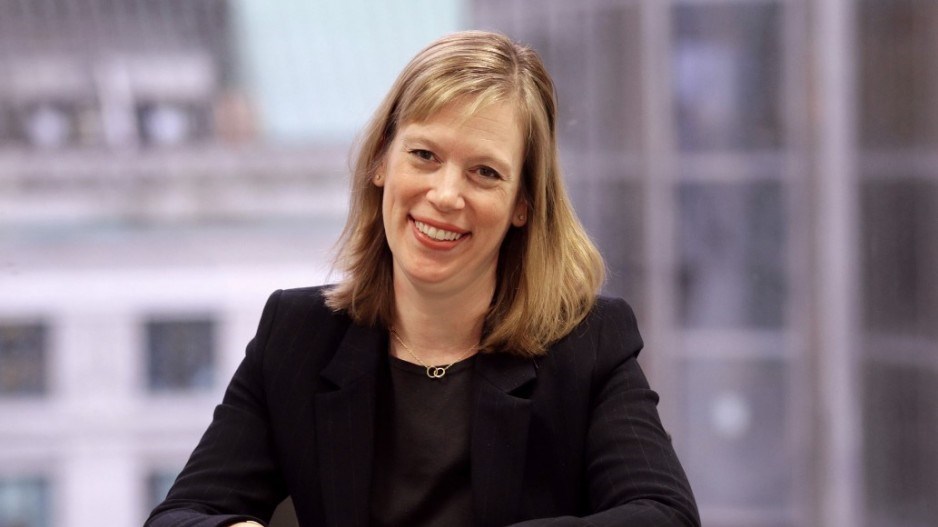Political infighting between the provincial and federal bodies that govern chartered professional accountants (CPAs) in Canada has escalated in the past month but has yet to impact B.C.
The accounting profession’s national body on June 20 announced that CPA Ontario and the Quebec CPA Order alerted it that they plan to sever ties with CPA Canada within 18 months.
CPA Ontario represents about 99,000 CPA members while the Quebec CPA Order represents around 41,000 CPA members, according to their websites. Combined, the two provinces represent nearly 64 per cent of the roughly 220,000 CPAs in Canada.
That means CPA Canada will likely have difficulty casting itself as a voice for CPAs across the country, given that it will only have ties with organizations that account for about 36 per cent of the country’s CPA professionals.
“I have no comment on that,” CPA BC CEO Lori Mathison told BIV when asked about how strong CPA Canada’s voice will be without any links to Ontario or Quebec.
“CPA BC is very neutral in terms of the discussion that’s happening right now. We are not directly involved in this matter. We have our own legislation here in B.C. We’re neutral, and we really have no position.”
She stressed that her organization is committed to working with everyone, including CPA Canada.
Provincial organizations already regulate the profession and determine who can obtain and keep the CPA designation within their jurisdictions.
CPA BC requires that CPAs complete its professional education program, which consists of six modules of part-time academics, passing an exam and acquiring 30 months of practical experience.
Mathison said CPA BC helps fund the creation of that training program while CPA Canada helps to develop it.
The program is designed for people who work full-time and want to study part-time. CPA candidates have up to six years to complete the education and seven years to complete the entire program.
They then need to take professional development courses and pay fees to CPA BC and CPA Canada to keep their designation.
“[The program] is actually delivered in the West through the CPA Western School of Business,” Mathison said.
The accounting industry created CPA Canada in 2013 to unify the many professional accounting organizations across the country.
The experiment of having a national body, however, has had challenges. Provincial and territorial representatives have said that its structure is inefficient, and that CPA Canada has resisted attempts to change that structure.
Provincial organizations recently urged CPA Canada to allow more provincial control and provide more seats to provinces on CPA Canada’s board of directors.
They also want CPA Canada to be more transparent in how it spends its money.
The national organization maintains that its value in part stems from setting overall accounting standards.
Mathison concurred.
“One of the most important things that CPA Canada does is it provides support for the independent standards, boards,” she said.
CPA Canada said in a statement that it plays a key ambassadorial role through its seats on the boards of numerous accounting, assurance, auditing and standard-setting bodies.
“CPA Canada is a trusted adviser speaking for the profession in consultations with Finance Canada, the CRA [Canada Revenue Agency,] the Senate and other government bodies on important federal issues including the budget, tax regime and financial crimes,” CPA Canada said.
It said it opposes the provincial bodies’ proposal to eliminate CPA Canada’s individual memberships.
CPA Canada has two classes of members: Organizational members such as the provincial bodies and individual members who are members in good standing with their provincial or territorial bodies. The proposed changes would mean individual CPAs would no longer be able to be members of CPA Canada, it said.
“We believe that a change of such magnitude can only be agreed after testing it with individual CPAs and the other provincial, territorial and Bermudian partners,” said CPA Canada, which also has CPA members in Bermuda.
CPA Ontario and CPA Quebec disagree that there needs to be consultation, according to CPA Canada.
CPA Ontario maintains that it is more efficient for it to solely oversee the profession in the province.
“As well as being home to Canada’s largest capital markets, financial institutions and pension funds, Ontario has one of the largest information technology and innovation clusters in North America, as well as robust manufacturing, energy, mining and agriculture,” said Jean Desgagné, who chairs the CPA Ontario Council.
“With new challenges facing Ontario businesses every day, it is our duty to ensure CPAs protect the public by meeting the highest standards of integrity and expertise, while advancing the profession by staying ahead of global economic and technological trends.”
The Quebec CPA Order relayed similar sentiments in its statement.
Severing ties with CPA Canada, it said, would enable it “to fulfill its mission of protecting the public while conducting its operations more efficiently within a governance framework better suited to its organization.”
Quebec’s move to sever ties with CPA Canada followed what the organization called “in-depth discussions on how best to carry out its mission while anticipating the unique needs of the Quebec economy.” •

